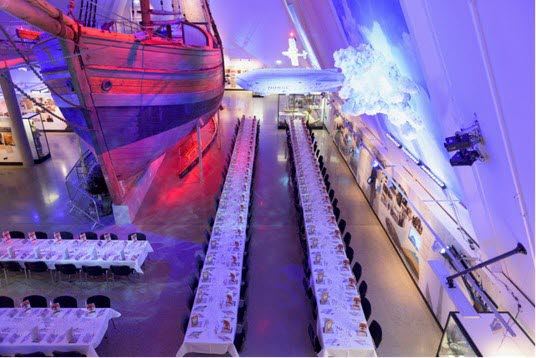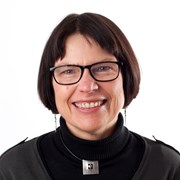Themes
Four major themes adapted from the four major Work-packages in HiPerCap are covered. Two sessions are devoted to the discussion of technology development and industrial application within the three major types of gas separation. One session will deal with methodologies for technology assessment and benchmarking. This workshop will be an excellent occasion to create synergies on CCS between R&D organisations and industry from Europe and Australia.
Themes, 13th of September:
- Absorption technologies
- Adsorption technologies
Themes, 14th of September:
- Membrane technologies
- Technology assessment and benchmarking
All presentations will be given by invited speakers within and outside the project consortium.
Program
Day 1
|
08:30-09:00 |
Registration and coffee/tea |
|
09:00-10:45 |
Session 1: Welcome and keynote-speakers |
|
09:00-09:10 |
Welcome and practical information |
|
09:10-09:40 |
Post-combustion testing at TCM |
|
09:40-10:20 |
CCS projects in Norway and prospects for CCS in Europe |
|
10:20-10:45 |
HiPerCap overview and major results |
|
10:45-11:15 |
Coffee Break |
|
11:15-12:55 |
Session 2: Absorption |
|
11:15-11:40 |
HiPerCap: Absorption technologies – overview and results |
|
11:40-12:05 |
Status: New and emerging technologies and future prospects |
|
12:05-12:30 |
CO2 capture combined with utilization |
|
12:30-12:55 |
Dynamic models and control strategies for absorption-based carbon capture processes |
|
12:55-14:00 |
Lunch |
|
14:00-16:10 |
Session 3: Adsorption |
|
14:00-14:25 |
HiPerCap: Adsorption technologies - overview and results |
|
14:25-14:50 |
Status: New and emerging technologies and future prospects |
|
14:50-15:15 |
Modelling of adsorption based CO2 capture processes for large scale applications |
|
15:15-15:45 |
Coffee Break |
|
15:45-16:10 |
Adsorption, pilot plant investigations and possibilities of large scale application |
|
16:10-17:15 |
Discussion-1 |
|
|
Theme: Technology development and lesson learned (from TRL1 to TRL 9) |
|
19:00-22:00 |
DINNER AT FRAMMUSEET - Bygdøy |
Day 2
|
08:30-09:00 |
Coffee/tea |
|
9:00-9:30 |
Prospects for CCS in Asia and Australia |
|
9:30-11:40 |
Session 4: Membranes |
|
9:30-9:55 |
HiPerCap: Membrane technologies - overview and results |
|
9:55-10:20 |
Main results from the M4CO2 project |
|
10:20-10:50 |
Coffee Break |
|
10:50-11:15 |
Modelling of membrane based CO2 capture processes for large scale applications |
|
11:15-11:40 |
Status: New and emerging technologies and future prospects |
|
11:40-12:30 |
Lunch |
|
12:30-14:40 |
Session 5: Technology evaluation |
|
12:30-12:55 |
HiPerCap: Assessment of CO2 capture technologies – overview and results so far |
|
12:55-13:20 |
Cost-estimation of immature technologies |
|
13:20-13:45 |
Benchmarking in other twinning projects – lesson learned |
|
13:45-14:15 |
Coffee Break |
|
14:15-14:40 |
CEMCAP – making CO2 capture retrofitable for cement plants |
|
14:40-15:45 |
Discussion-2 |
|
|
Theme: Industrial CO2 capture applications |
|
15:45-16:00 |
Workshop wrap-up and closure |
Practical information - dinner and accomodation
There will be a sponsored dinner 13th September at 19.00 at the Fram musem at Bygdøy. A free bus transportation from the DNV GL venue to the museum and restaurant will be offered just after the program is finished. Then there will be an opportunity to also see the museum.
Musemum webpage - Fram museum.
Dinner is sponsored by Technology Centre Mongstad.
Participants must arrange for any hotelreservation by themselves. The following hotels are recommended:
Hotel Scandic Sjølyst, Sjølyst Plass 5, 0212 Oslo, Norway. This hotel is close to the Skøyen train station from which the free shuttle bus (marked with DNVGL) is leaving (every 30 minutes from 6:40 to 8:40). It is also relatively close to the Fram museum, the venue for the dinner.
Thon hotel Oslofjord, Sandviksveien 184, 1337 Sandvika, Norway. This hotel is close to the Sandvika train station from which the free shuttle bus (marked with DNVGL) is leaving (06:45 - 07:05 - 07:25 - 07:45 - 08:05 - 08:25 - 08:45 ). This hotel is closer to the workshop venue, but farther from Oslo city centre

